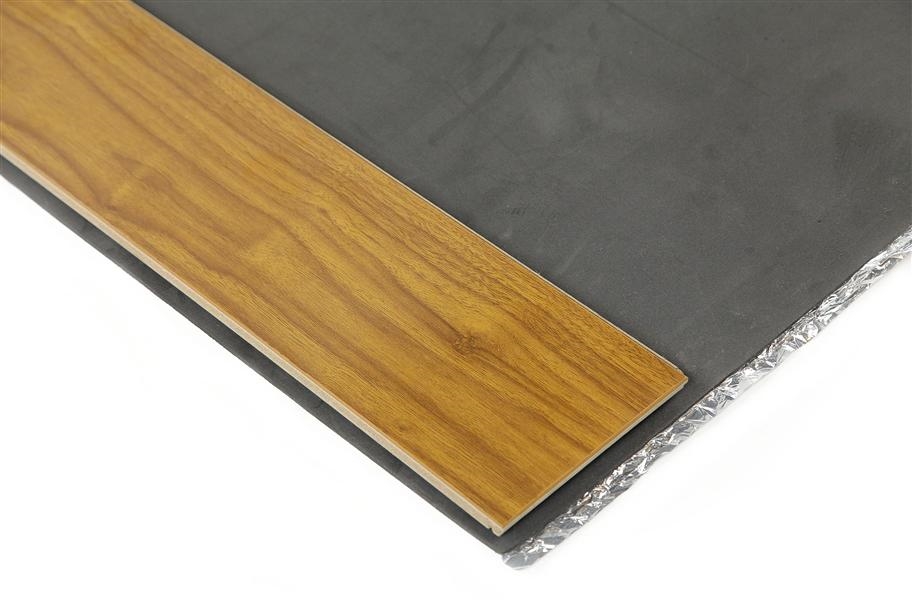You’re ready to install new floors, but a question lingers: do you need a moisture barrier under vinyl? It’s a crucial question, especially if you’re dealing with potential moisture problems like a concrete slab basement or a leaky bathroom. The answer, while seemingly simple, depends on a few key factors. Think of it like building a foundation – a strong and reliable moisture barrier can ensure your vinyl floor enjoys a long, happy life.

Image: dragon-upd.com
Vinyl flooring has earned its popularity for its durability, affordability, and versatility. But even the most resilient flooring can falter in the face of moisture. Understanding the importance of moisture barriers and when they’re needed is essential for any homeowner embarking on a flooring project. This article will guide you through the complexities of moisture barriers, providing you with the knowledge to make the best decision for your specific situation.
Understanding Moisture Barriers
A moisture barrier, sometimes called a vapor barrier, acts as a shield, preventing moisture from migrating up from the subfloor and into your flooring system. This is particularly important for vinyl flooring because its susceptibility to moisture damage can lead to warping, buckling, and even mold growth.
Who Needs a Moisture Barrier?
Not all installations require a moisture barrier. Here’s a breakdown of when they’re crucial:
- Concrete Subfloors: Concrete is inherently porous and can absorb moisture from the ground or leaks. This moisture can rise to the surface and damage your vinyl flooring.
- Basements: Basements often experience higher humidity levels, making them more prone to moisture problems. A moisture barrier is vital to prevent moisture from seeping into your vinyl floor.
- Bathrooms and Kitchens: These areas are susceptible to spills, splashes, and general humidity. A moisture barrier provides an extra layer of protection against water damage.
- Over Existing Tile: If you’re installing vinyl over existing tile, a moisture barrier can prevent water from penetrating any gaps or cracks in the underlying tile.
Types of Moisture Barriers
Several types of moisture barriers are available, each with its characteristics and advantages:
- Polyethylene Sheeting: This common and affordable option is readily available at most home improvement stores. It comes in various thicknesses and can be easily installed.
- PVC Membrane: This durable and flexible membrane is often used in high-traffic areas and offers excellent moisture resistance. It’s relatively expensive but may be worth the investment for long-lasting protection.
- Moisture-Resistant Underlayment: This specialized underlayment is designed to act as both a moisture barrier and a cushioning layer for your vinyl flooring. It’s a convenient and effective solution for many installations.

Image: vmflooringandmore.com
Choosing the Right Moisture Barrier
The best choice for your situation depends on factors like budget, subfloor type, and expected moisture levels. Consider these factors:
- Your Budget: Polyethylene sheeting is the most affordable option, while moisture-resistant underlayment typically comes at a higher price.
- Subfloor Type: Concrete subfloors generally require a stronger moisture barrier than wooden subfloors.
- Moisture Risk: High-moisture areas like bathrooms or basements may benefit from a more robust moisture barrier.
Proper Installation
Proper installation is critical to ensure the effectiveness of a moisture barrier. Here are some key steps:
- Prepare the Subfloor: Clean and level the subfloor to create a smooth, even surface. Any cracks or gaps should be repaired.
- Lay the Moisture Barrier: Overlap the sheets of moisture barrier by at least 6 inches to prevent gaps. Secure the edges with tape or staples.
- Install the Floor: Follow the manufacturer’s instructions for installing your vinyl flooring over the moisture barrier.
Maintenance and Long-Term Benefits
A properly installed moisture barrier will protect your vinyl flooring for years to come. However, regular maintenance can help prolong its lifespan:
- Keep it Dry: Promptly clean up spills and leaks to prevent moisture from seeping beneath the flooring.
- Ventilate: Ensure adequate ventilation in areas with high humidity, such as bathrooms and kitchens.
- Address Any Issues: If you notice any signs of moisture damage, take immediate action to prevent further problems.
Do You Need Moisture Barrier Under Vinyl Flooring
Conclusion
While not always mandatory, a moisture barrier can be a valuable investment for your vinyl flooring, especially when dealing with concrete subfloors, basements, bathrooms, or areas with a high risk of moisture. By understanding the types of moisture barriers, choosing the right option for your situation, and installing it properly, you can ensure that your vinyl floor remains beautiful and functional for years to come. Remember, a little extra protection goes a long way in preserving your investment and creating a comfortable and healthy living space.






